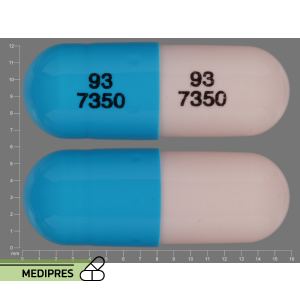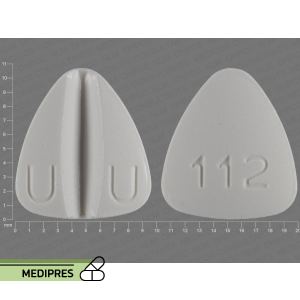
Lamotrigine ODT
23 June, 2023
Leqembi
23 June, 2023Lansoprazole Orally Disintegrating Tablets
Generic name:
Lansoprazole
Drug class:
Proton pump inhibitor (PPI)
Dosage form:
Orally disintegrating tablets (ODT)
Root of administration:
Oral
Dose:
- Typical dosing ranges from 15 mg to 30 mg once daily.
- For Helicobacter pylori eradication, 30 mg twice daily in combination with antibiotics.
- Variation depends on indication:
- Gastric and duodenal ulcers: 15–30 mg daily for 4–8 weeks.
- GERD and erosive esophagitis: 15–30 mg daily for 4–8 weeks; may extend treatment if needed.
- Zollinger-Ellison syndrome: doses may be higher and individualized.
Mechanism of action:
Lansoprazole is a substituted benzimidazole that suppresses gastric acid secretion by specifically inhibiting the H+/K+ ATPase enzyme system (the proton pump) of the gastric parietal cells. This inhibition is irreversible and leads to profound and long-lasting reduction of basal and stimulated gastric acid secretion.
Drug usage cases:
- Treatment of gastroesophageal reflux disease (GERD)
- Healing and maintenance of erosive esophagitis
- Short-term treatment of active duodenal ulcers
- Short-term treatment of benign gastric ulcers
- Eradication of Helicobacter pylori infection as part of combination therapy
- Prevention of NSAID-induced gastric ulcers
- Treatment of Zollinger-Ellison syndrome and other pathological hypersecretory conditions
- Off-label uses: prevention and treatment of gastric hyperacidity linked to stress ulcers, and management of non-ulcer dyspepsia
Drug contra indications:
- Known hypersensitivity to lansoprazole or any other benzimidazole compounds
- Hypersensitivity to substituted benzimidazoles or any of the excipients in the formulation
Side effects:
- Common: headache, diarrhea, abdominal pain, nausea, constipation, dizziness
- Less common: dry mouth, rash, rash with pruritus, flatulence
- Rare but serious:
- Severe allergic reactions including anaphylaxis
- Clostridium difficile-associated diarrhea
- Vitamin B12 deficiency with long-term use
- Hypomagnesemia, especially with prolonged treatment
- Bone fractures with long-term therapy (due to decreased calcium absorption)
- Liver function abnormalities (elevated liver enzymes, hepatitis)
- Interstitial nephritis
Warnings:
- Use with caution in patients with severe hepatic impairment; dose adjustment may be necessary.
- Long-term use may increase risk of gastric mucosal changes such as fundic gland polyps.
- Potential increased risk of Clostridium difficile infection in hospitalized patients.
- Hypomagnesemia risk with prolonged use; monitor magnesium levels if usage exceeds 3 months, especially if patients are on concomitant medications that can cause hypomagnesemia.
- Consider risk of osteoporosis-related fractures; ensure adequate calcium and vitamin D intake.
- Masking of symptoms of gastric malignancy; ensure ulcers are properly diagnosed before treatment.
- May interfere with absorption of drugs dependent on gastric pH (e.g., ketoconazole, atazanavir, digoxin).
Use during pregnancy or breastfeeding:
Use of lansoprazole during pregnancy should be considered only if the potential benefit justifies the potential risk to the fetus. Animal reproduction studies have shown no direct or indirect harmful effects with respect to pregnancy, embryonal/fetal development, or postnatal development at clinically relevant doses. Human data are limited but do not indicate a clear risk.
During breastfeeding, lansoprazole is excreted in breast milk in small amounts. Although no adverse effects on the nursing infant have been reported, caution is advised, and use should be based on clinical necessity and risk-benefit assessment.



